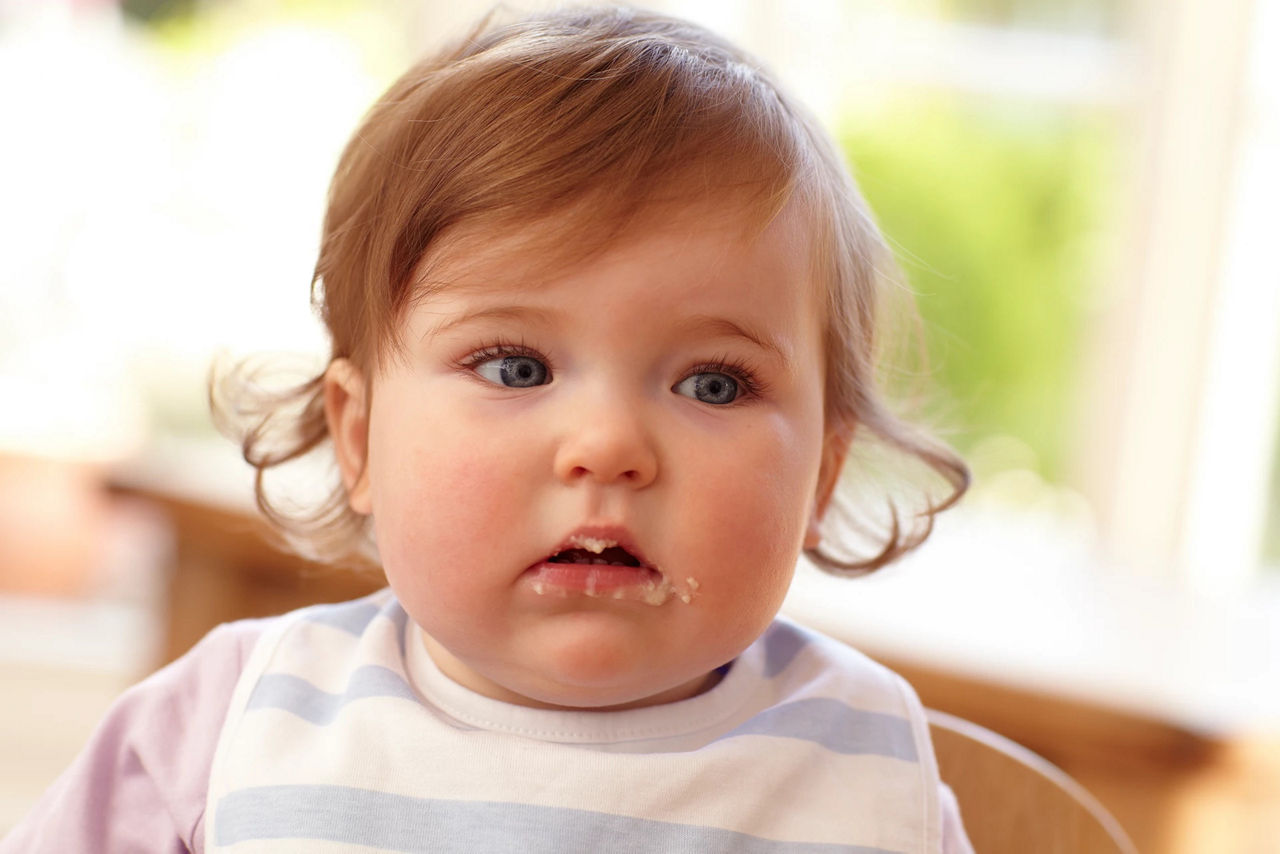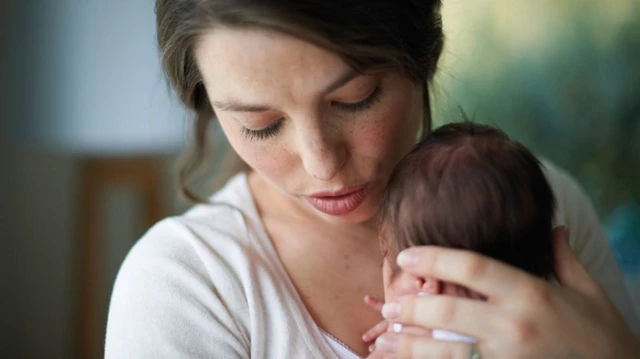Infant crying: Your baby’s first form of communication
Crying is the first sound you’ll hear from your baby – it’s their first form of communication and is certainly the most dramatic. It can be hard to cope with, but it’s reassuring to know that some crying is completely normal.

The science behind baby crying
Incredibly babies can’t produce tears at birth. Their tear ducts only produce enough water to moisturise their eyes during their first weeks of life; real tears can take up to three months to appear, sometimes even longer1.
It’s thought that tears have evolved to evoke sympathy, strengthening bonding, thereby securing survival2. They certainly provoke a strong reaction, but perhaps not as intense a reaction as the sound of crying.
A baby’s cry has a unique effect on our hearing that we find hard to ignore, even if the baby is not ours. Our ears are most sensitive to the frequency a baby cries at (3,000 hertz) and it promotes an immediate ‘fight or flight’ type response, even raising our blood pressure3. It seems that the sound is designed to make sure we tend to our baby’s needs as quickly as possible, but it can also mean that looking after a crying baby can be very stressful.

Real tears can take up to three months to appear, sometimes even longer. A baby's cry has a unique effect on our hearing that we find hard to ignore.
What to do if your baby won’t stop crying
Knowing that some crying is normal is comforting, but looking after a constantly crying baby can be emotionally demanding and physically exhausting. If your baby is unsettled, take turns with your partner to try these soothing techniques3:
- Carry your baby as much as possible. Babies love close contact (including skin-to-skin).
- Use sound. Some babies like singing, music or even ‘white noise’ or the sound of the vacuum cleaner.
- Use touch. Some babies love a warm bath or a gentle massage.
- Some babies are soothed by gentle movement, rocking, bouncing or even car journeys.
- Have a change of scene. A walk in the fresh air will often calm your baby and make you feel better too.
Don’t forget to look after yourself as well as your baby, and talk to your health visitor or GP if you’re concerned about your baby’s crying.
Next steps
• Find out why babies cry.
• Talk to your health visitor if you’re worried about your baby’s crying. It could be caused by colic or some other discomfort.
•If your baby is less than 12 months old our Baby Symptom Checker is a useful way to capture their symptoms for a discussion with your health care professional. It also offers some practical tips.
• Ask for help from friends and family. If you’re stressed, your baby will pick up on it and often cry more. Make sure you take some time for yourself to relax and rebalance.
Related articles

Need some help?
You can get quick answers to common questions in our FAQs.
Alternatively, if you need help with general pregnancy or baby advice, or maybe on using or ordering our products - our expert team are always on hand to talk about feeding your baby.




